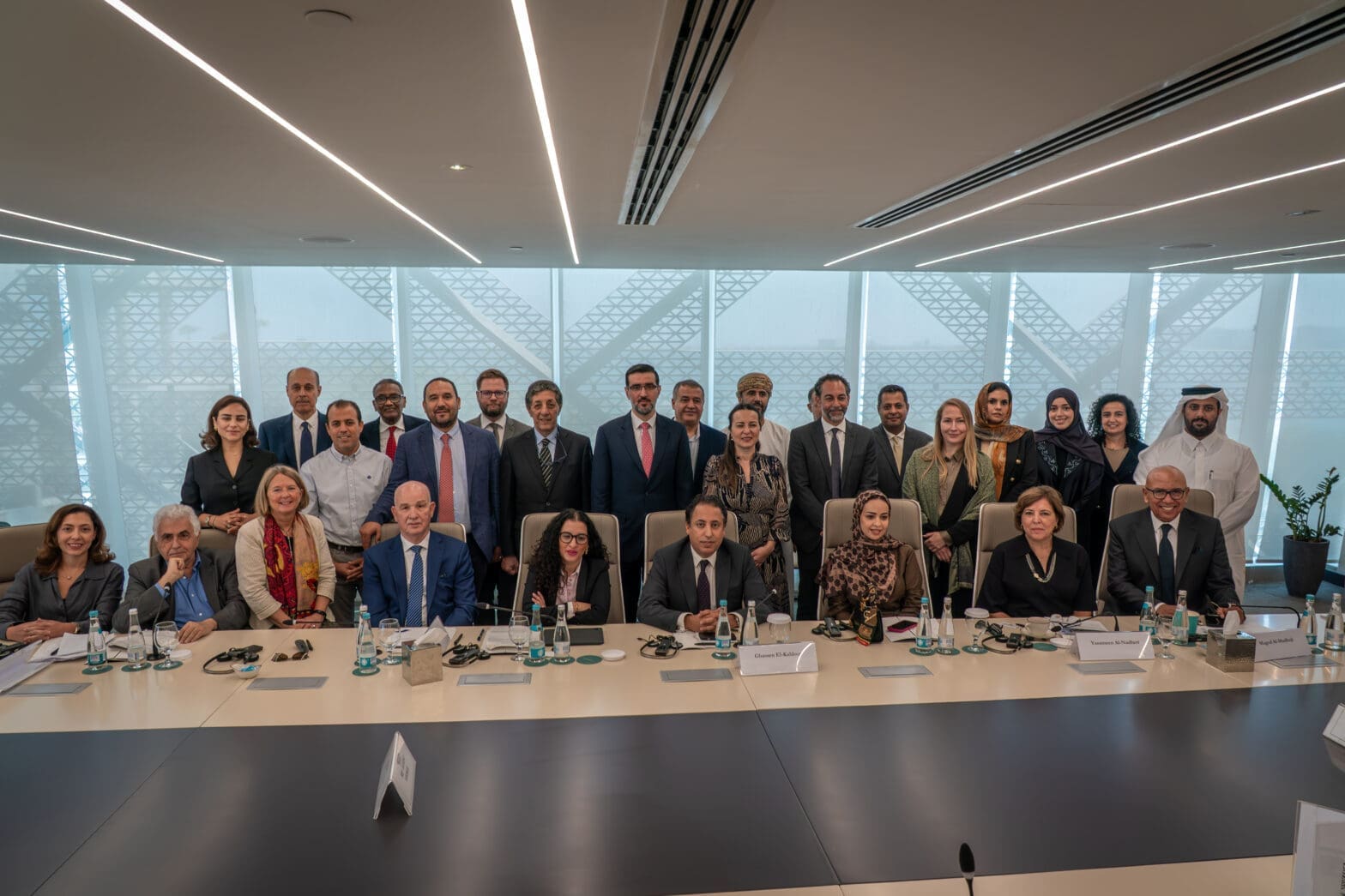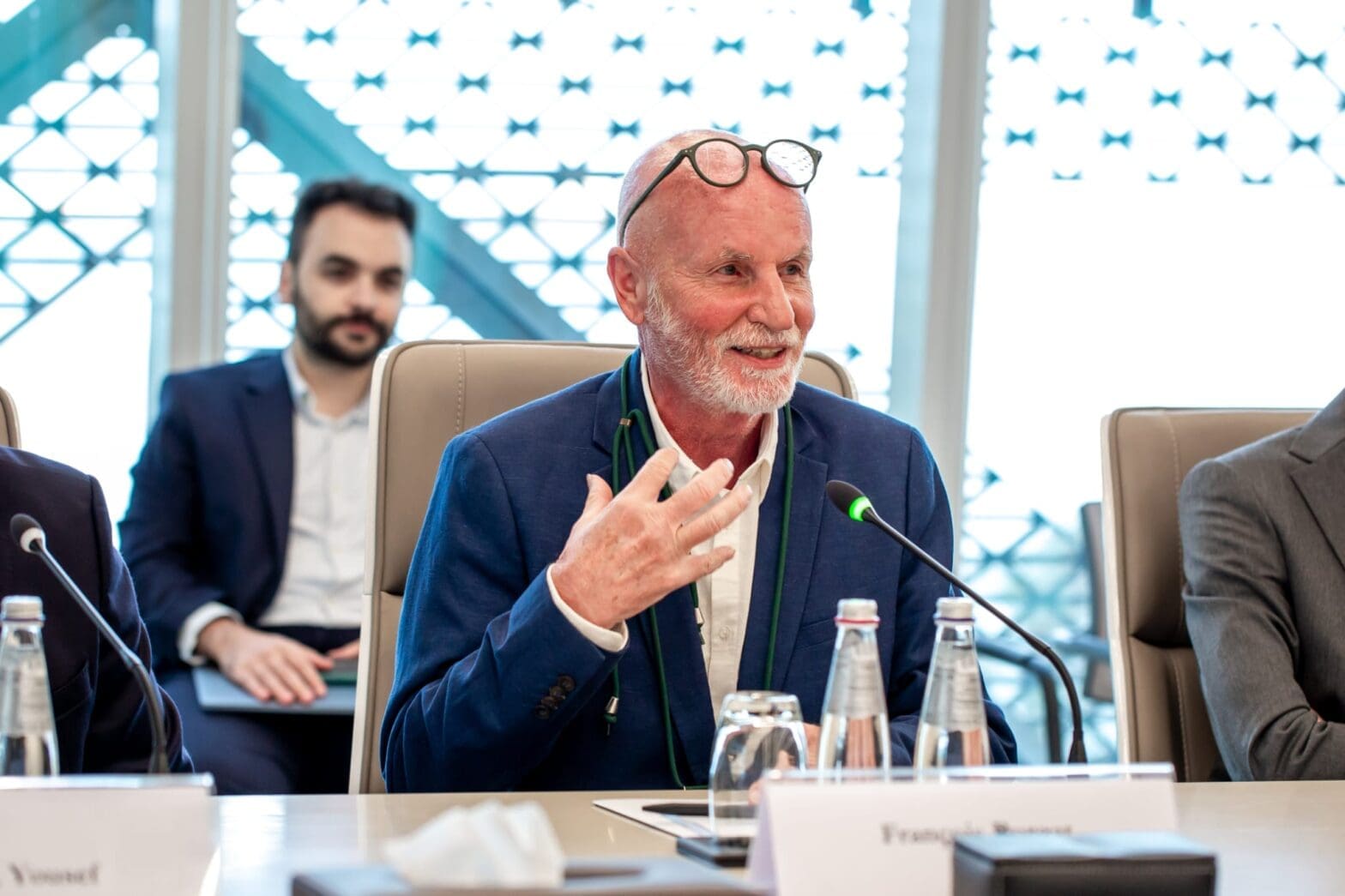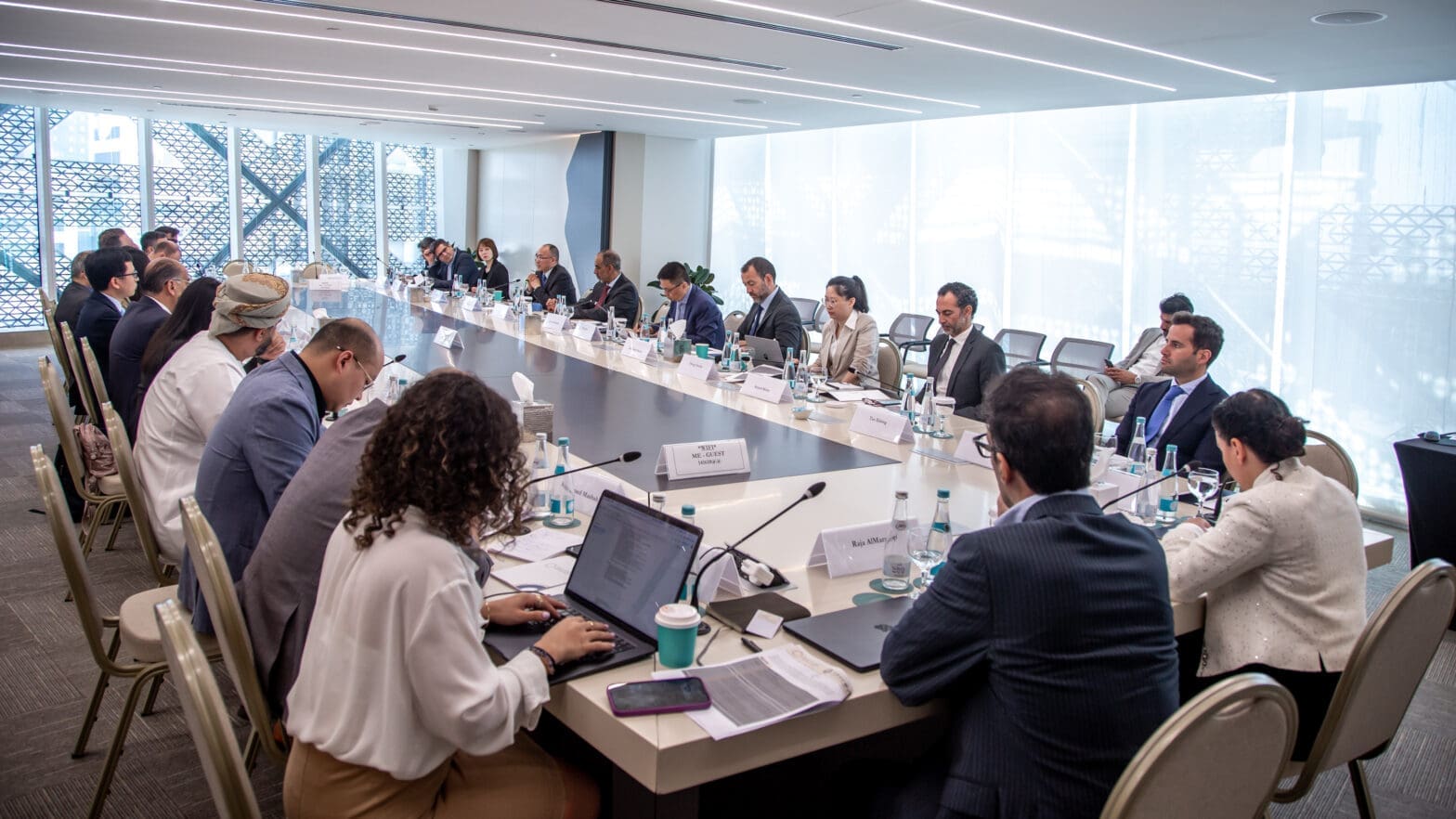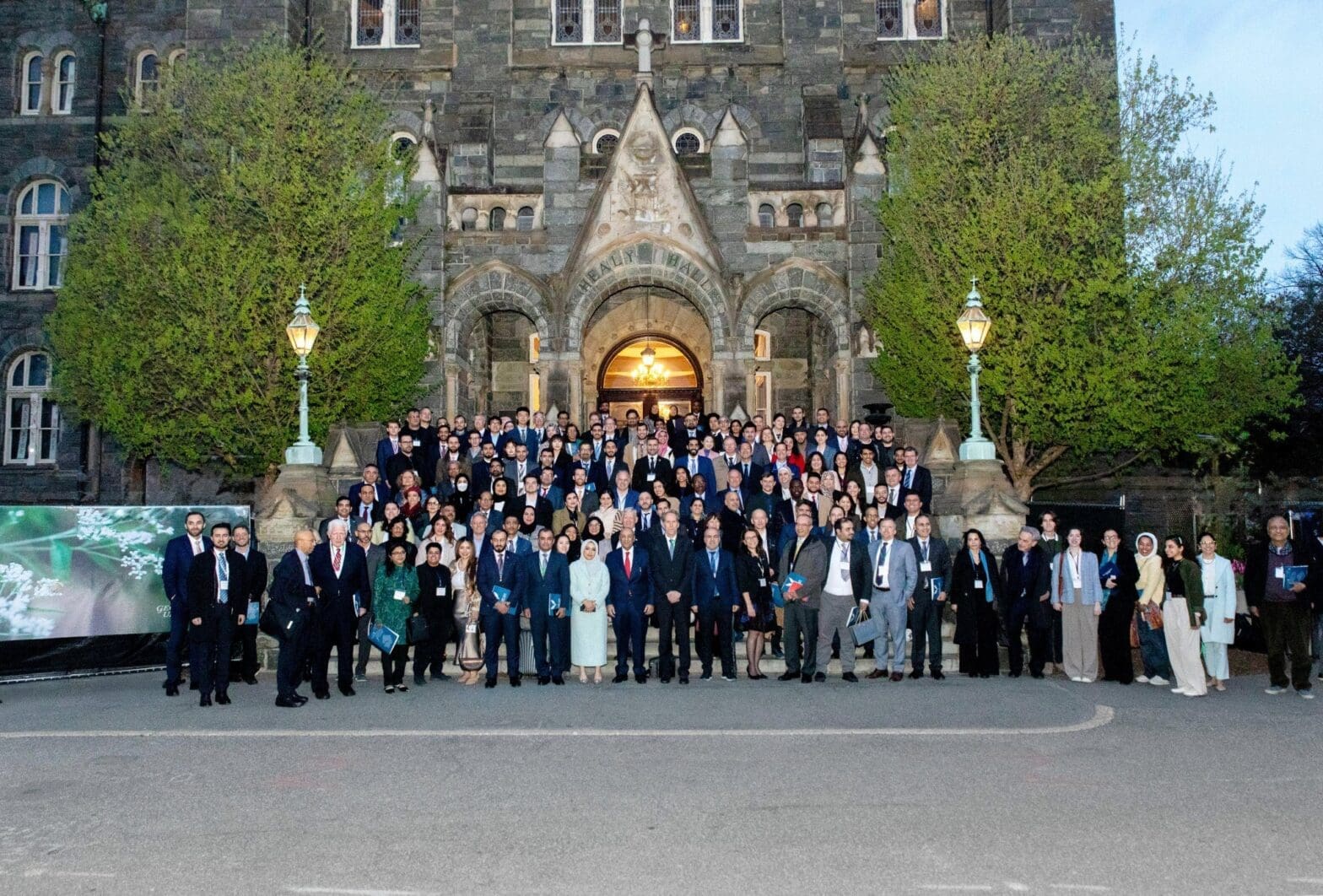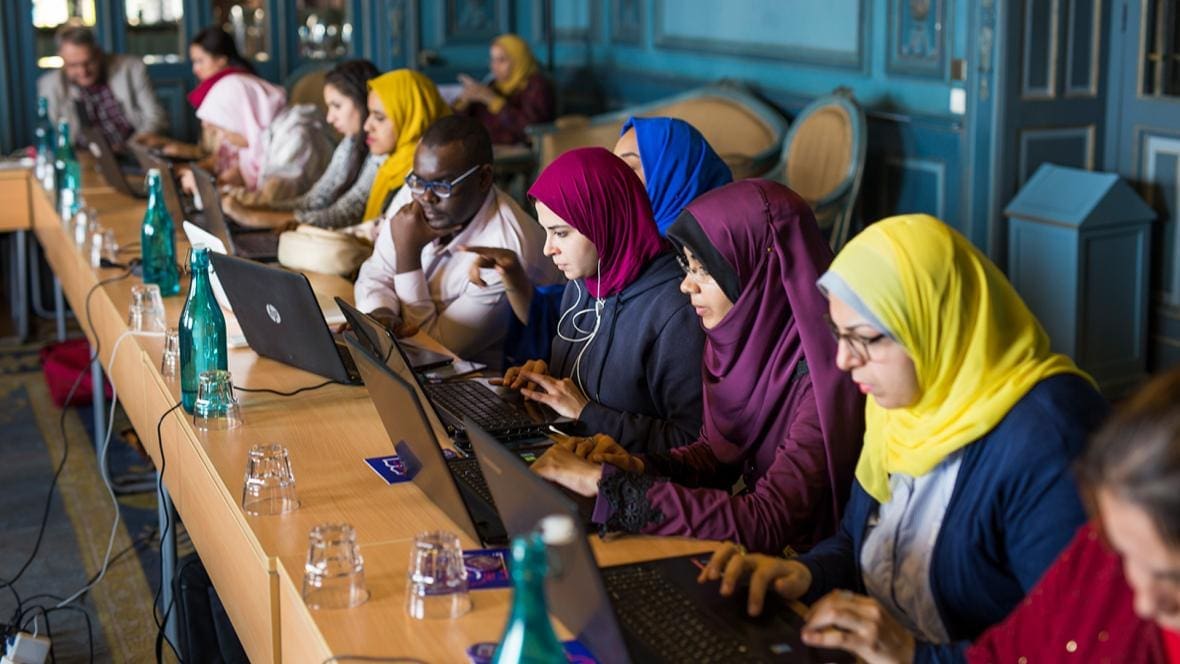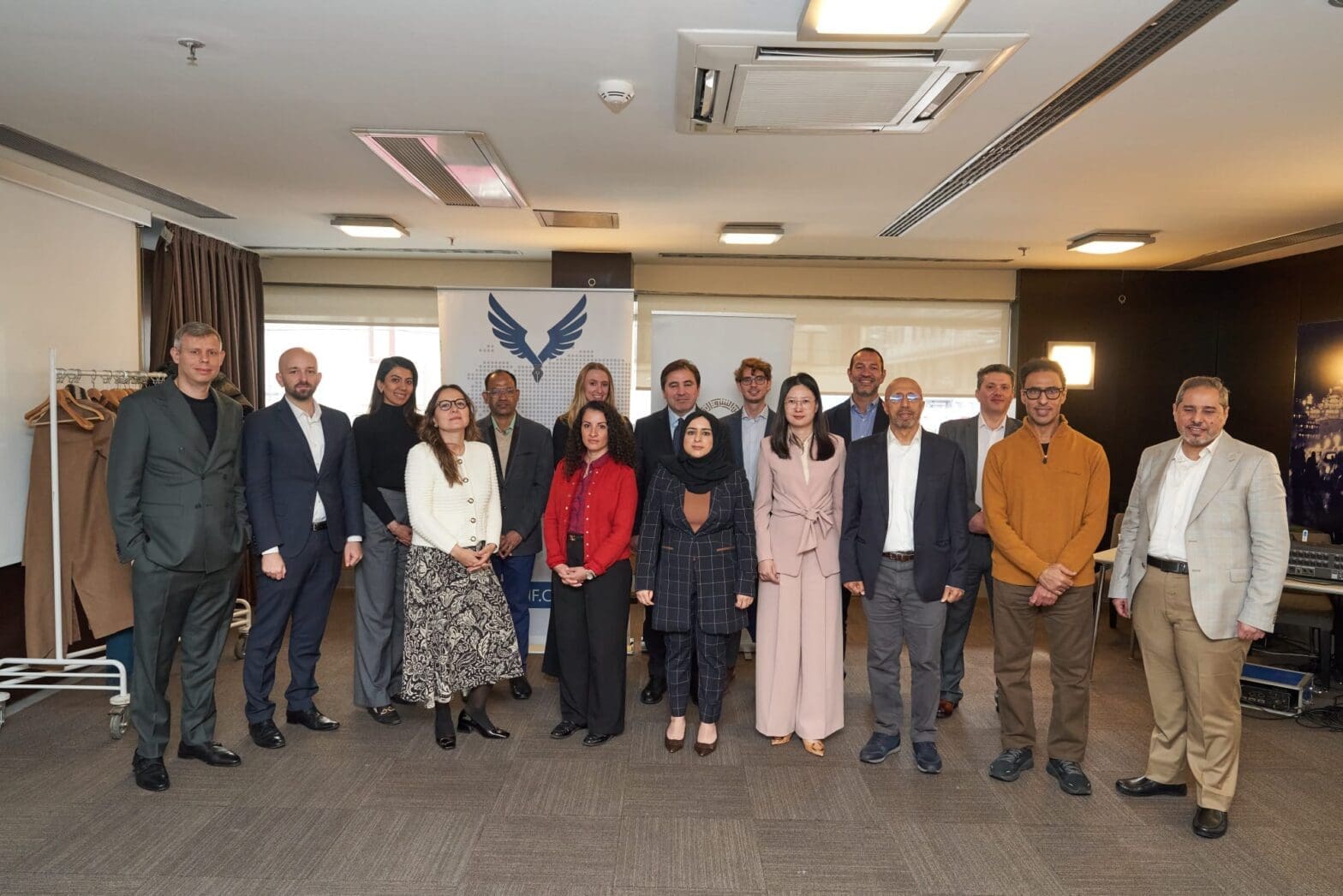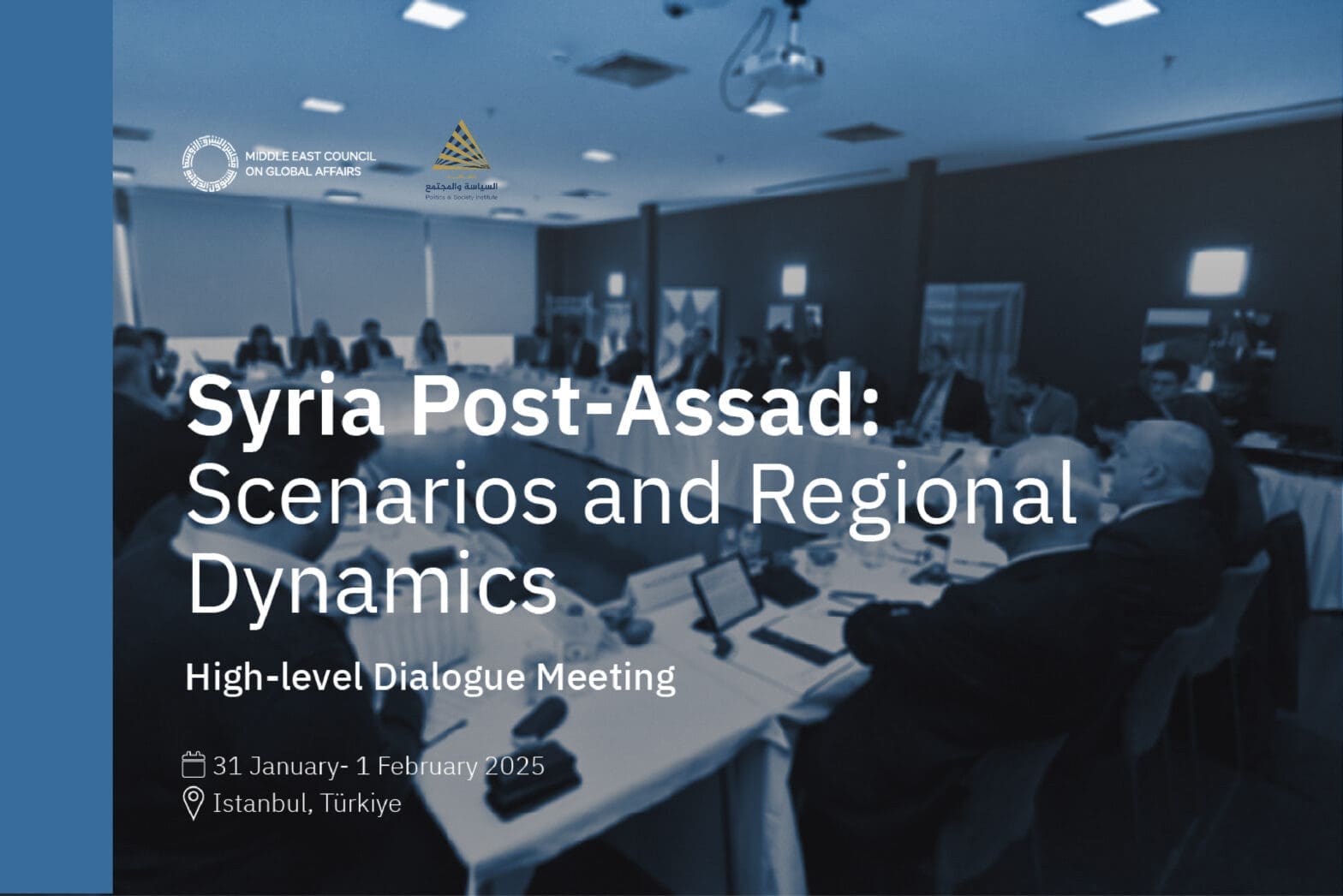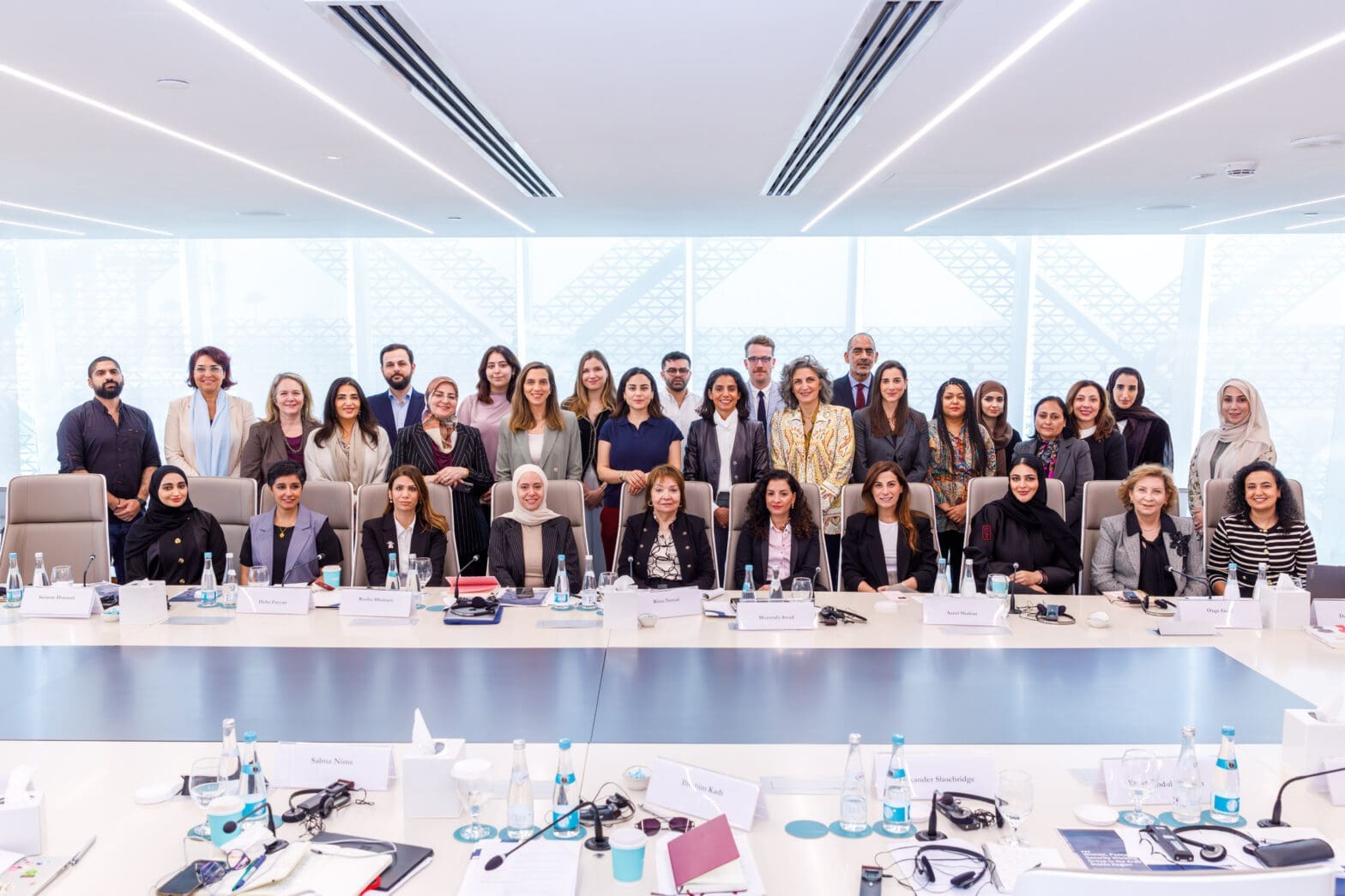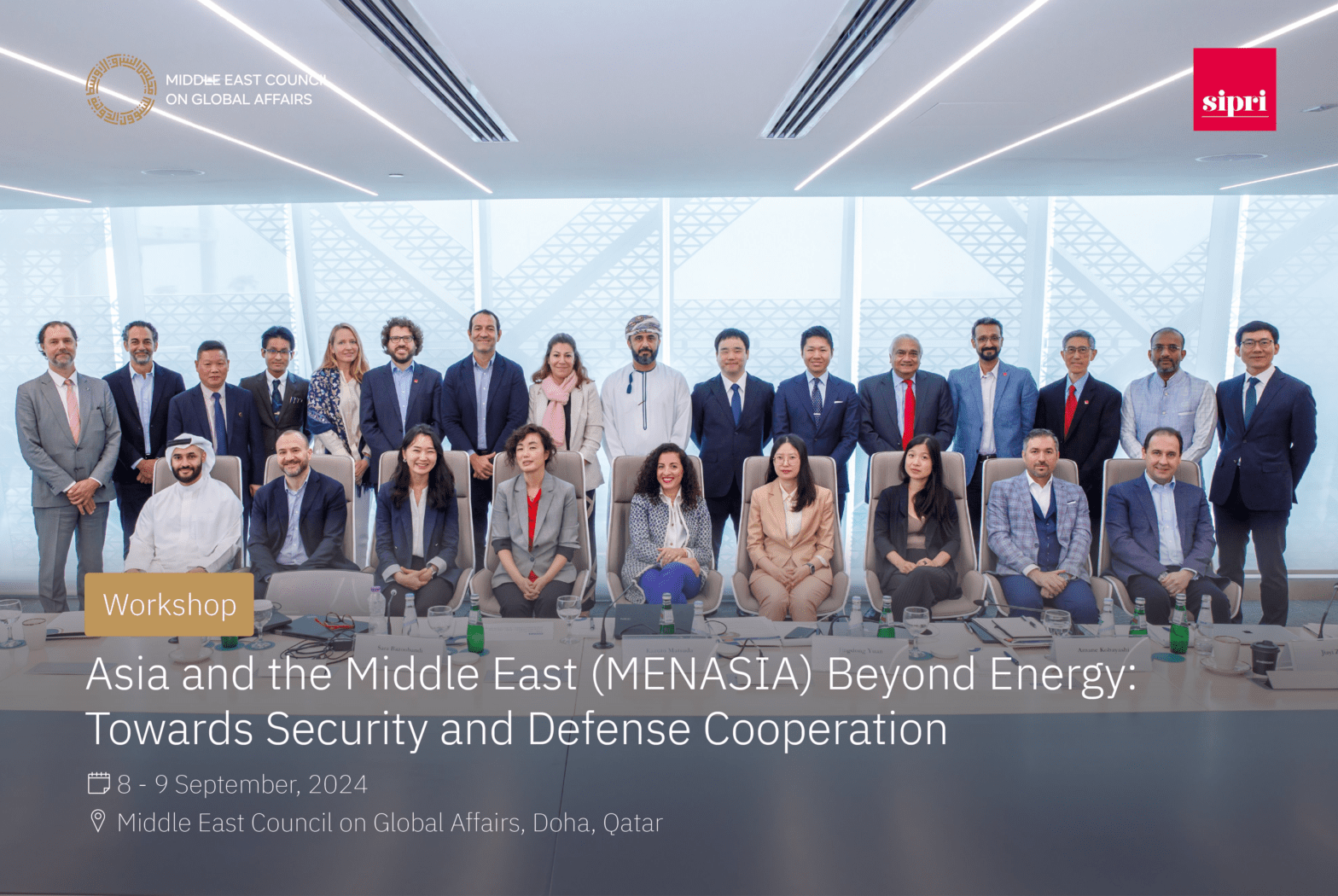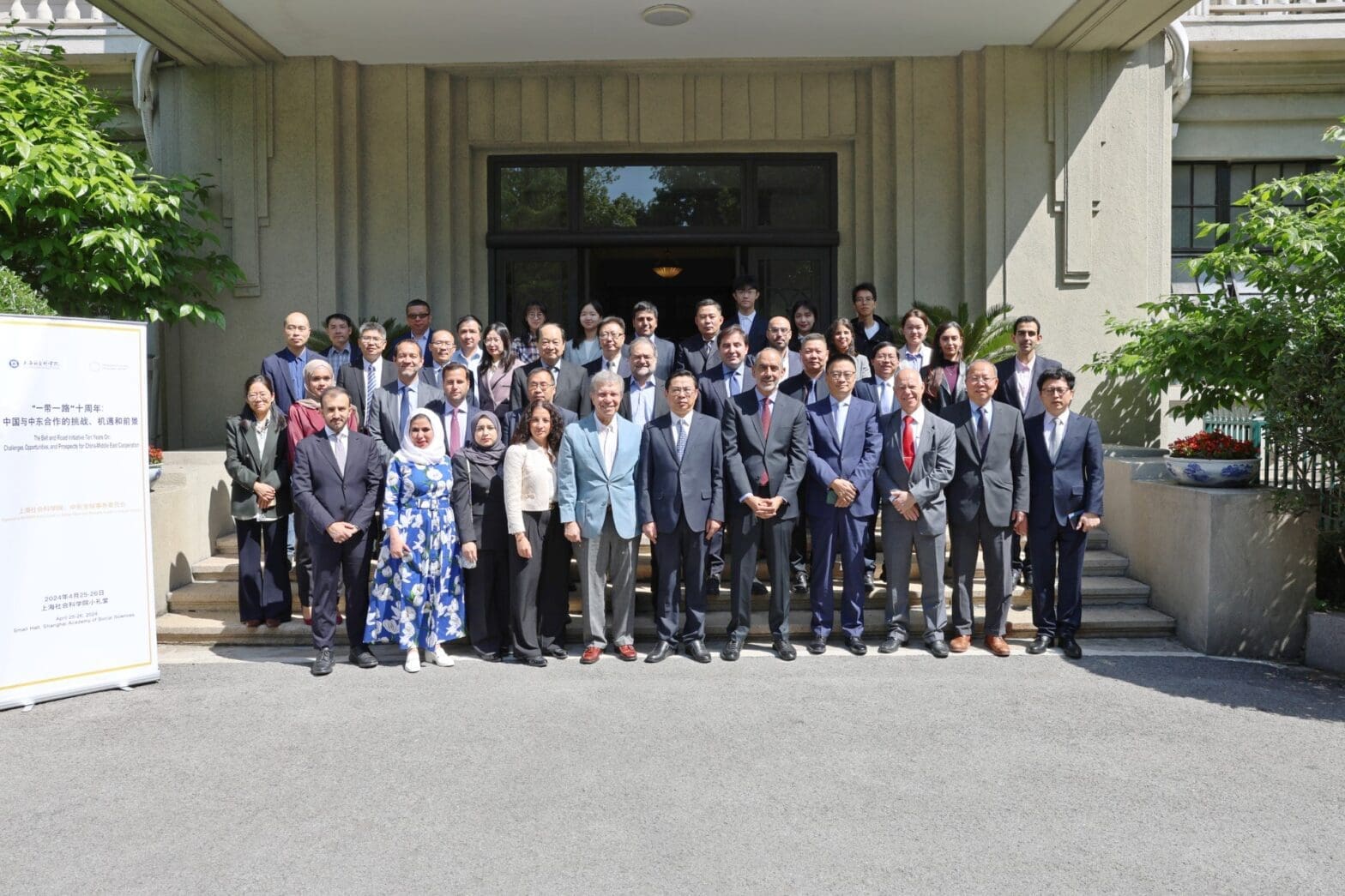As traditional peace-making structures face unprecedented challenges, new approaches are
urgently required. Regional leadership from the Arab World has become more critical than ever for
both regional and global stability.
Event Type: Closed Workshop
2nd Annual MENA Think Tank Forum
The Arab region faces unprecedented challenges—from the conflicts in Sudan and Palestine to the fall of the Assad regime—prompting a rethinking of governance, international norms, and global engagement. The 2nd MENA Think Tank Forum convened Arab and international experts to examine global public goods, regional priorities, and strategies for collective action.
4th Women, Peace and Security Working Group Meeting
Marking 25 years of the Women, Peace and Security agenda, the fourth WPS Working Group meeting in Abu Dhabi finalized a landmark regional White Policy Paper. Bringing together women peace actors and policy experts from across the Arab Region, the dialogue set shared priorities and practical recommendations ahead of the UN’s 2025 anniversary debate.
Back to the Future – North Africa 2030
The North Africa Dialogues and Analysis Group (NADA) hosted its inaugural workshop, “Back to the Future: North Africa 2030,” in Rome on September 8–9, 2025. Bringing together leading scholars and regional experts, the event examined governance, security, economic, demographic, and social trends shaping North Africa over the next decade and share forward-looking insights with policymakers and practitioners.
Closed Roundtable Discussion with François Burgat
In a closed roundtable, François Burgat joined the Middle East Council to discuss the rise of racism, Islamophobia, and repression in France and the West, particularly following the Gaza war, and their broader policy implications.
EU-MENA Relations During the Polish Presidency in the Council of the European Union
The Middle East Council on Global Affairs, in partnership with the Embassy of the Republic of Poland in Doha, hosted a roundtable titled “EU-MENA Relations During the Polish Presidency in the Council of the European Union.” The event convened regional experts and diplomats to explore evolving EU-MENA dynamics, highlighting shared challenges and avenues for enhanced cooperation amid shifting global geopolitical and economic trends.
Industrial Policy and the GCC: Stay the Course or Adapt to a New Reality?
The Middle East Council on Global Affairs convened experts and regional stakeholders for a virtual roundtable on the future of industrial policy in the GCC. The discussion addressed the region’s use of state-led tools to drive diversification and examined whether these strategies remain effective amid rising global protectionism, trade fragmentation, and shifting geopolitical dynamics.
The Future of China-MENA Cooperation: Navigating Uncertainty and Competition
China-MENA relations are deepening amid shifting global power dynamics and regional volatility. This workshop, co-hosted by the Shanghai Academy of Social Sciences and the Middle East Council on Global Affairs, explores how China’s Belt and Road Initiative and its newer global strategies—GDI, GSI, and GCI—are shaping the future of cooperation, economic recovery, and strategic autonomy in the Middle East.
Public Opinion Analysis in the Arab World: Understanding Societies and Shaping Public Policy
Understanding the role of public opinion in shaping economic, political, and social change across the Arab world, in collaboration with the Gulf International Forum.
Inclusivity in Conflict Resolution and Peacebuilding: A Regional Dialogue
Conflicts and crises continue to shape the Middle East and North Africa (MENA), yet the spaces where these issues are discussed, analyzed, mediated, and resolved do not always reflect the full range of expertise available. Women specialists in peace and conflict resolution contribute critical analysis and policy solutions, but structural barriers can limit their visibility… Continue reading Inclusivity in Conflict Resolution and Peacebuilding: A Regional Dialogue
Towards a New Discourse of Global Connectivity: The Gulf’s New Horizons in Strategic Corridors and Partnerships
In an era of shifting geopolitical landscapes and evolving trade routes, economic corridors have emerged as critical drivers of connectivity, trade, and economic growth. The recent launch of the India-Middle East-Europe Economic Corridor (IMEC) at the G20 Summit in New Delhi underscores the growing importance of such initiatives. IMEC, along with other emerging corridors like… Continue reading Towards a New Discourse of Global Connectivity: The Gulf’s New Horizons in Strategic Corridors and Partnerships
Syria Post-Assad: Scenarios and Regional Dynamics
The Middle East Council on Global Affairs (ME Council) in partnership with the Politics and Society Institute (PSI) organized a two-day dialogue meeting to examine Syria’s evolving political landscape under the transitional administration of President Ahmed al-Sharaa, former leader of Hay’at Tahrir al-Sham (HTS). Discussions centered on current realities and future prospects as efforts advance… Continue reading Syria Post-Assad: Scenarios and Regional Dynamics
Yemen-GCC Economic Collaboration and Post-Conflict Reconstruction
The Middle East Council on Global Affairs, in collaboration with the Rethinking Yemen’s Economy project—a joint initiative by DeepRoot Consulting, the Sana’a Center for Strategic Studies (SCSS), and the Center for Applied Research in Partnership with the Orient (CARPO)—co-organized a high-level closed roundtable. This event brought together representatives from the Development Champions Forum (DCF), policymakers,… Continue reading Yemen-GCC Economic Collaboration and Post-Conflict Reconstruction
Women, Peace, and Security Working Group in the Arab States Region
The 25th anniversary of the landmark WPS agenda in 2025 presents a critical opportunity to assess its effectiveness and redefine its relevance in the evolving context of the Arab Region. Despite the progress made on the adoption of the WPS agenda in the region, significant challenges and gaps remain in achieving its full implementation and… Continue reading Women, Peace, and Security Working Group in the Arab States Region
Palestine’s Path Forward: Operationalizing Vehicles of Accountability
Discussions at Doha Forum 2024, focusing on ‘The Innovation Imperative’ to reshape global governance, foster cooperation, and address critical challenges.
Carbon Emissions Reduction Strategies for Qatar
On 30 September 2024, the Middle East Council on Global Affairs and Earthna Center for a Sustainable Future organized a workshop to explore viable carbon emissions reductions strategies and pragmatic policy alternatives that could help Qatar achieve its ambitious target of reducing greenhouse gas emissions by 25 percent by 2030.
The Gulf and the Horn of Africa: Crossroads of Influence in the Trans-Red Sea Region
The Horn of Africa (HOA) and the Gulf region are tied by a long history of cultural, social, economic, and political links. While intra-Gulf geostrategic competition has brought both the Gulf and the Horn regions closer in various fields, it has also fueled local rivalries and contributed to the escalation of regional tensions and conflicts. The Bab al-Mandeb strait, a crucial node and vulnerable chokepoint along global trade routes, has accelerated geostrategic rivalries and interventions by global and regional actors including the United States, China, Iran, Russia, Saudi Arabia, and Türkiye.
Think Tank Forum: Organizing for Collective Impact
The Middle East and North Africa (MENA) region is confronting serious political and socioeconomic challenges, from mass demonstrations and civil conflicts to intensifying macroeconomic volatility and governance crises eroding citizen-state relations.
Middle East Dialogue 2024
The Middle East Dialogue, a panel of regional and extra-regional experts convened by the Middle East Institute’s (MEI) Conflict Resolution and Track II Dialogues Program and the Middle East Council on Global Affairs (ME Council), met in Doha, Qatar, on May 21-22, 2024, to explore regional political and economic dynamics.
Qatar’s Role in Global Emissions Mitigation
On 3 June 2024, the Middle East Council on Global Affairs (ME Council) and Qatar Foundation’s Earthna Center for a Sustainable Future (Earthna) convened a roundtable discussion focusing on Qatar’s role in global emissions mitigation.
Asia and the Middle East (MENASIA) Beyond Energy: Towards Security and Defense Cooperation Workshop
The Middle East Council on Global Affairs (ME Council) and the Stockholm International Peace Research Institute (SIPRI) coorganized a workshop that seeks to analyze the evolving role of Asian countries in the security and defense of the Middle East.
Reinventing Money: Central Bank Digital Currencies and their Global Implications
ME Council held a roundtable discussion on Central Bank Digital Currencies (CBDCs) and their implications on May 10 and 11, 2024 in Istanbul, Türkiye, and in collaboration with the UNDP’s Istanbul International Center for Private Sector Development.
The Belt and Road Initiative Ten Years On: Challenges, Opportunities, and Prospects for China-Middle East Cooperation
The Middle East Council on Global Affairs (ME Council) co-hosted a workshop titled “The Belt and Road Initiative Ten Years On: Challenges, Opportunities, and Prospects for China-Middle East Cooperation” in partnership with the Shanghai Academy of Social Sciences (SASS). The event took place on April 25-26, 2024, at SASS.
MENA Think Tank Roundtable: Improving Relevance and Impact at a Time of Mounting Global Uncertainty
The Middle East and North Africa (MENA) region faces complex issues, including conflict, inequality, and water scarcity, amid intensifying geopolitical competition and threat multipliers such as climate change. Think tanks play a critical role in generating policy solutions to these issues but must work creatively and collaboratively to navigate the uncertain terrain. Moreover, think tanks themselves face challenges, from connecting with decision-makers to securing operational resources while maintaining their autonomy. In response to these challenges, the Middle East Council on Global Affairs (ME Council) and the Issam Fares Institute for Public Policy and International Affairs (IFI) at the American University of Beirut (AUB) convened a roundtable think tank leaders from across the region. The roundtable consisted of five sessions held at the Center for International and Regional Studies (CIRS) at Georgetown University in Qatar (GU-Q). The distinguished participants assessed the opportunities and risks confronting their think tanks and the region.
Unpacking the Governance Challenge in MENA: A Conversation about Transparency and Right to Information
The Middle East Council on Global Affairs (ME Council) held a virtual workshop on November 16, 2022, to reflect on issues of transparency and right to information (RTI) in the Middle East and North Africa (MENA) region. This discussion followed an initial online workshop on governance reform held on June 30, 2022. The second workshop was attended by distinguished former policymakers, scholars, and experts who assessed the region’s transparency track record and charted pathways forward. The discussion was moderated by Tarik M. Yousef, senior fellow and director of the ME Council, and Robert P. Beschel Jr., nonresident senior fellow at the ME Council.

